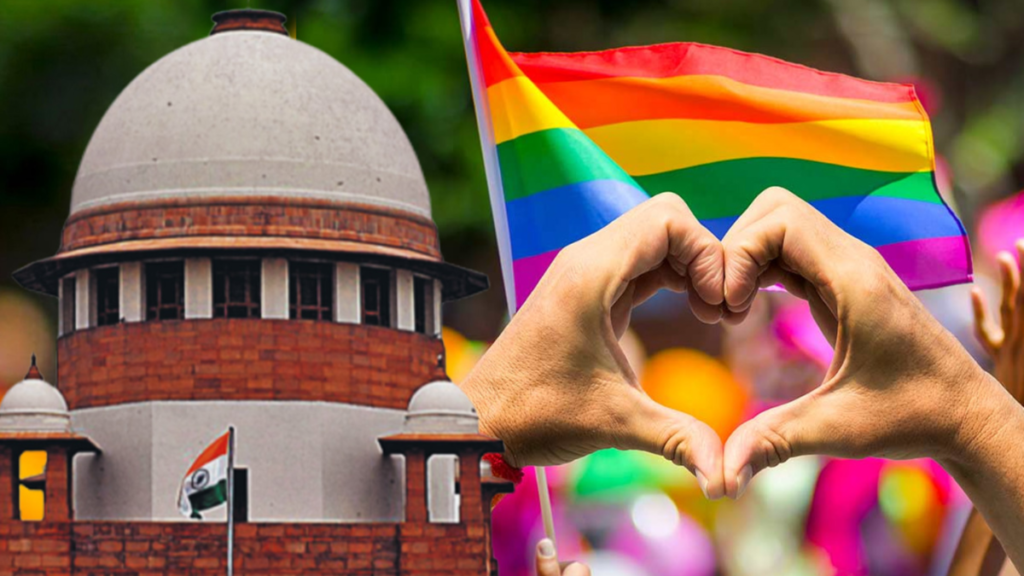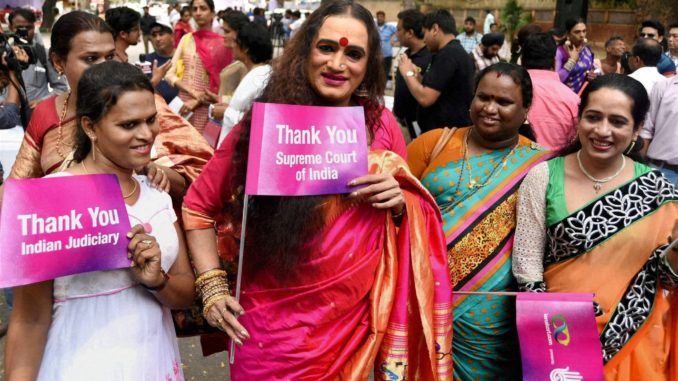
Same-sex marriage has become a serious issue in India. According to societies, LGBTQ+ communities are destroying our culture. Our culture doesn’t accept the fact of Homosexuality. Because of this, the concept of Homosexuality is banned by law or traditional custom, and even established gender roles/dress were banned. People worldwide endure violence, inequality, and, at times, even torture or execution due to their love, appearance, or identity. Sexual orientation and gender identity are intrinsic aspects of individuals and should never be grounds for discrimination or mistreatment. Human Rights Watch strives to protect the rights of LGBTQ+ individuals and partners with activists advocating for various identities and causes. Our mission involves documenting and exposing global abuses linked to sexual orientation and gender identity, such as torture, killings, unjust arrests, unequal treatment, censorship, medical mistreatment, employment and housing discrimination, domestic violence, child abuse, and denial of family rights. We champion laws and policies to uphold everyone’s dignity, working toward a world where all enjoy their full rights.
In India, recent years have witnessed transformative legal changes that have significantly impacted the LGBTQ+ community. Progressive Judgments and milestones have recognized the rights and dignity of LGBTQ+ individuals, marking a remarkable journey toward equality.
A pivotal moment for India’s LGBTQ+ community came with the landmark Naz Foundation v. Government of NCT of Delhi case. The Delhi High Court’s historic ruling declared Section 377 of the Indian Penal Code, which criminalized consensual same-sex relationships, as unconstitutional. This decision shed light on individual freedom, privacy, and the right to love without discrimination, offering hope and progress.
In 2014, the Supreme Court of India issued a groundbreaking ruling in the National Legal Service Authority vs Union of India case. The court officially acknowledged transgender individuals as a distinct third gender, endowing them with fundamental rights and legal safeguards. This verdict affirmed their dignity, identity, and entitlement to equality, non-discrimination, and access to social welfare programs.
The landmark Navtej Singh Johar vs Union of India case ignited fresh hope and freedom for the LGBTQ+ community. The Supreme Court’s historic decision abolished the oppressive elements of section 377, decriminalizing consensual same-sex relationships. This ruling resonated with principles of equality, freedom, and the inherent right to love and live without persecution. It marked a monumental victory for LGBTQ+ inclusivity and the dismantling of long-standing prejudices.
In the Shafin Jahan v. Asokan K.M and another case, the Supreme Court acknowledged the fundamental right to marry, extending it to all, including same-sex couples. While not explicitly legalizing same-sex marriage, the court emphasized the importance of societal acceptance and called upon the legislature to address the issue. This progressive ruling laid the foundation for ongoing discussions and potential future recognition of same-sex relationships.

To address the vulnerability and marginalization experienced by transgender individuals, the Transgender Persons (Protection of Rights) Act, 2019 was implemented. This law aimed to grant transgender people a range of rights and safeguards, including the right to self-identify their gender, protection from discrimination, access to healthcare and education, employment, and social welfare opportunities. The Act marked a substantial stride towards inclusivity and empowerment for the transgender community.
To address the vulnerability and marginalization experienced by transgender individuals, the Transgender Persons (Protection of Rights) Act, 2019 was implemented. This law aimed to grant transgender people a range of rights and safeguards, including the right to self-identify their gender, protection from discrimination, access to healthcare and education, employment, and social welfare opportunities. The Act marked a substantial stride towards inclusivity and empowerment for the transgender community.
In a recent verdict, the Supreme Court of India broadened the legal definition of “family” to encompass same-sex couples. In the case of Deepika Singh vs Central Administrative Tribunal, the court recognized the significance and rights of same-sex relationships, affirming the profound emotional and committed connections with LGBTQ+ couples. This Judgment reinforced the acknowledgement of same-sex relationships in society and underscored the necessity for legal protection and societal acceptance.
In a recent ruling, the Supreme Court addressed the rights of Queer communities. The Court declined to provide legal recognition for queer marriages in India, indicating that this is a matter for the legislation to decide. Nevertheless, all judges on the bench concurred that the Union of India, in line with a prior statement, would establish a committee to assess the rights and entitlements of individuals in queer relationships, even without formally labelling them as “marriages”. The court also unanimously affirmed the right of queer couples to cohabit without fear of violence, coercion, or interference but refrained from issuing directives for their formal recognition as marriages.
The debate over same-sex marriage in India continues to be a complex and evolving issue. While significant legal progress has been made in recognizing the rights and dignity of LGBTQ+ individuals, the question of legalizing same-sex marriage remains with the legislature. The recent Supreme Court ruling, while not granting formal recognition to queer marriages, underscores the importance of societal acceptance and the ongoing conversation surrounding this topic. The journey towards full LGBTQ inclusivity and rights continues.